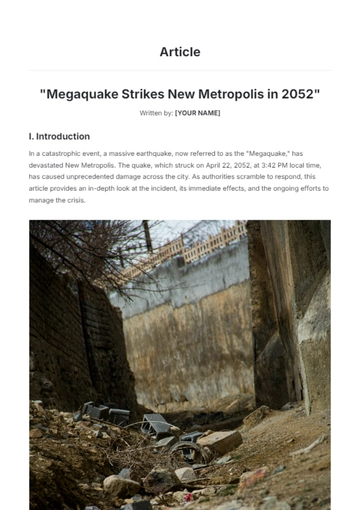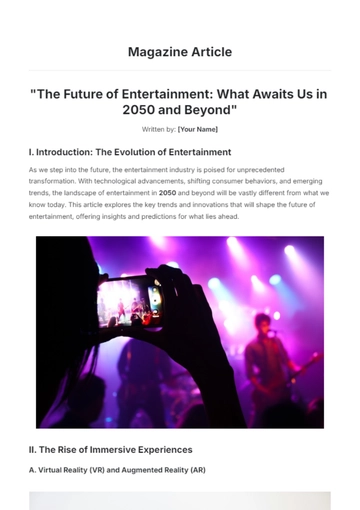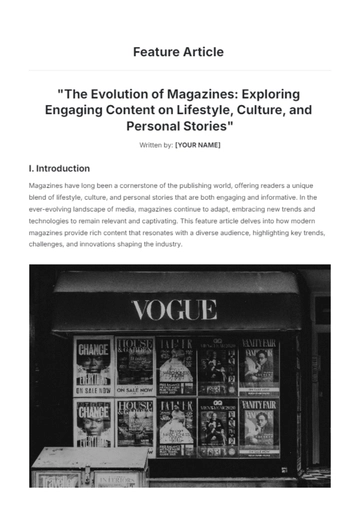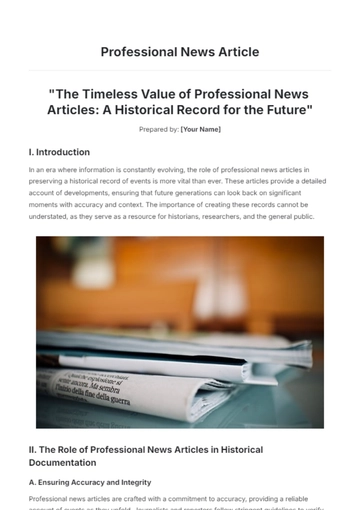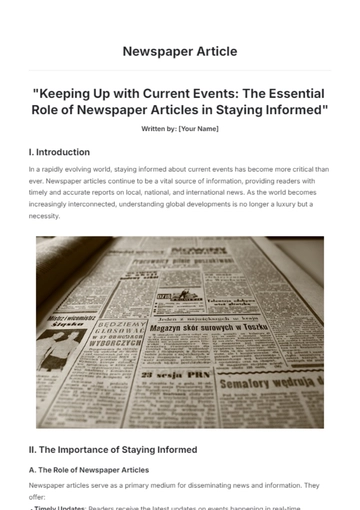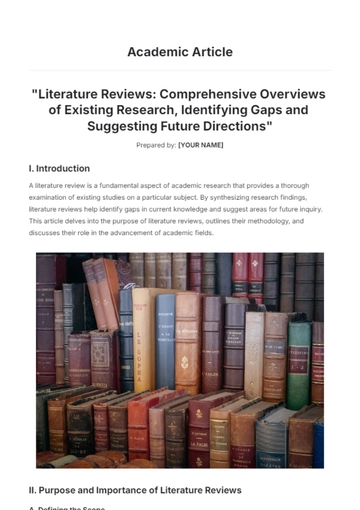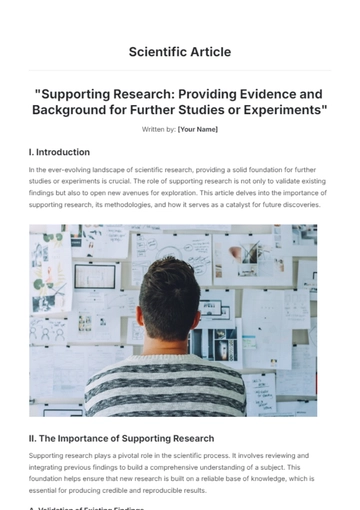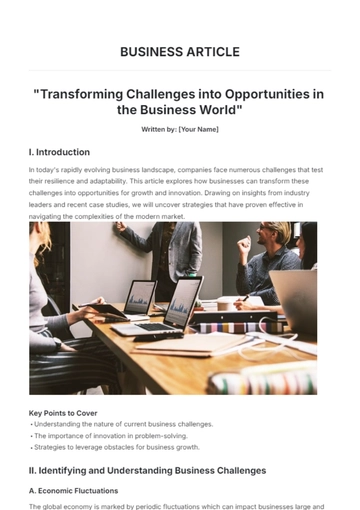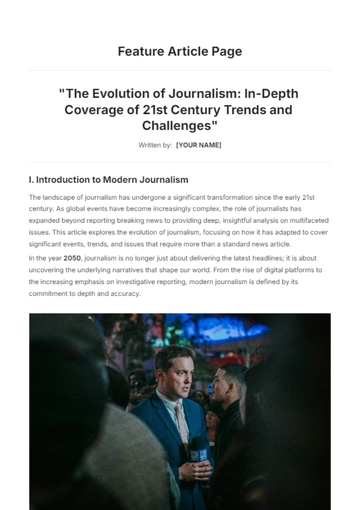Free Investigative Article
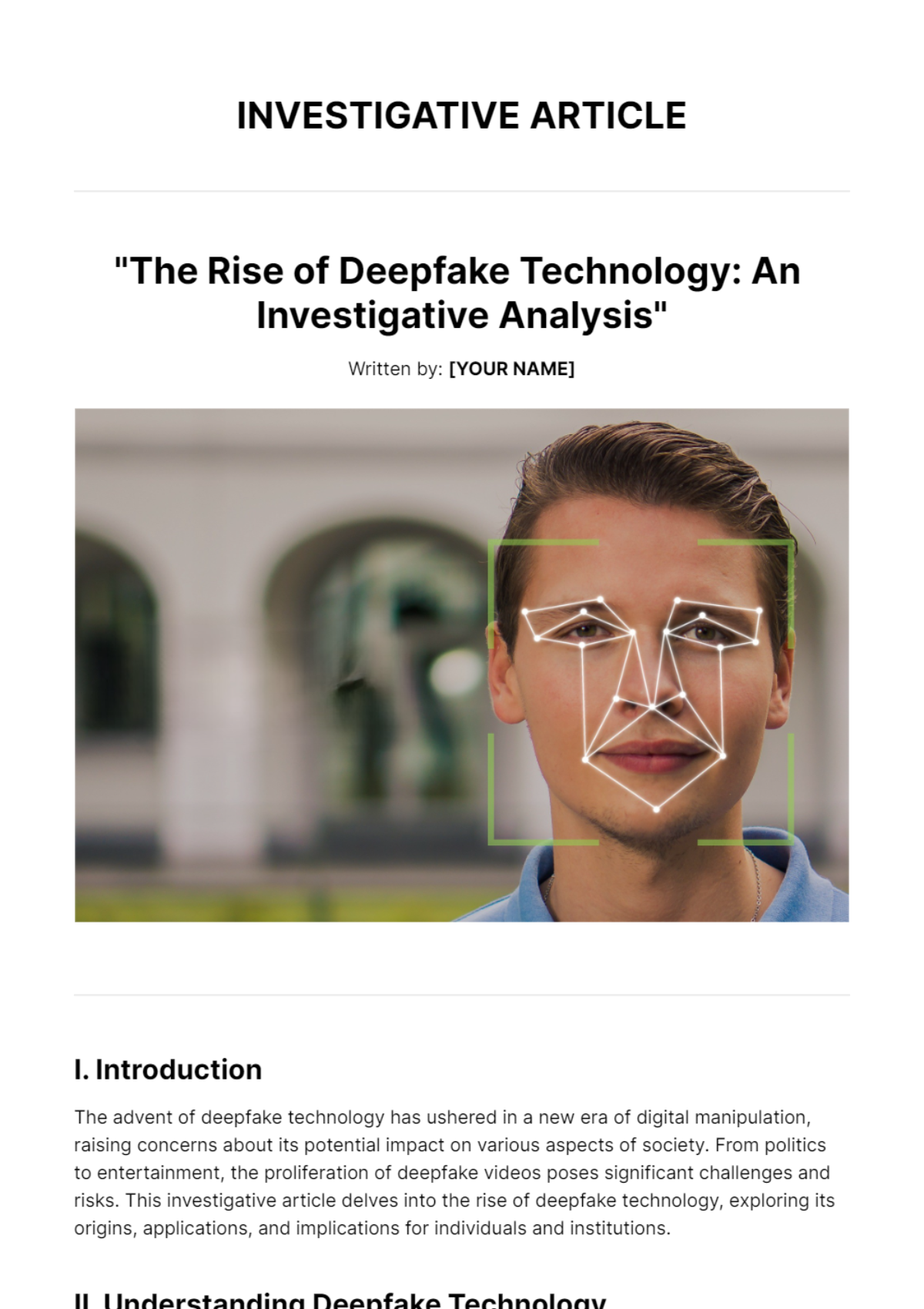
"The Rise of Deepfake Technology: An Investigative Analysis"
Written by: [YOUR NAME]

I. Introduction
The advent of deepfake technology has ushered in a new era of digital manipulation, raising concerns about its potential impact on various aspects of society. From politics to entertainment, the proliferation of deepfake videos poses significant challenges and risks. This investigative article delves into the rise of deepfake technology, exploring its origins, applications, and implications for individuals and institutions.
II. Understanding Deepfake Technology
A. Definition and Origins
Deepfake technology refers to the use of artificial intelligence (AI) algorithms to create highly realistic fake videos or images, often featuring individuals who never said or did the actions depicted. The term "deepfake" is derived from "deep learning" and "fake."
Deepfake technology gained prominence in 2017 when a Reddit user utilized machine learning techniques to superimpose celebrities' faces onto pornographic videos. Since then, technology has evolved rapidly, fueled by advances in AI and deep learning algorithms.
B. How Deepfake Technology Works
Deepfake algorithms rely on neural networks to analyze and manipulate large datasets of images or videos. These networks are trained to learn facial features, expressions, and speech patterns, enabling them to generate convincing fake videos. Typically, the process involves collecting extensive footage of the target individual and using it to train the algorithm to generate realistic simulations of their behavior. As a result, deepfake videos can be indistinguishable from genuine recordings to the untrained eye.
III. Applications of Deepfake Technology

A. Misinformation and Fake News
One of the most pressing concerns surrounding deepfake technology is its potential to spread misinformation and manipulate public opinion. With the ability to fabricate videos of public figures engaging in incriminating or scandalous behavior, malicious actors can undermine trust in institutions and sow discord within society. Moreover, the virality of social media platforms amplifies the reach and impact of deepfake content, making it challenging to combat its spread.
B. Political Manipulation
Deepfake technology poses a significant threat to the integrity of democratic processes by enabling the creation of counterfeit videos depicting politicians making inflammatory or compromising statements. These videos can be weaponized to discredit political opponents, influence elections, and destabilize governments. As such, policymakers and electoral authorities must develop robust strategies to detect and mitigate the impact of deepfake disinformation campaigns.
IV. Ethical and Legal Implications

A. Privacy Concerns
The widespread availability of deepfake technology raises serious privacy concerns, as individuals' likenesses can be used without their consent to create deceptive content. Celebrities, politicians, and ordinary citizens alike are vulnerable to having their identities misappropriated for malicious purposes, jeopardizing their reputations and personal safety. Moreover, the lack of clear legal frameworks governing the use of deepfake technology exacerbates these privacy risks.
B. Legal Ramifications
As deepfake technology blurs the line between reality and fiction, it presents numerous legal challenges regarding defamation, intellectual property rights, and digital impersonation. Existing laws may be ill-equipped to address the unique complexities of deepfake content, requiring legislative updates and judicial precedents to establish accountability and deterrence. Additionally, law enforcement agencies must enhance their technological capabilities to investigate and prosecute deepfake-related crimes effectively.
V. Conclusion
The rise of deepfake technology represents a formidable challenge for society, necessitating concerted efforts from policymakers, tech companies, and the public to mitigate its negative consequences. While the potential applications of deepfake technology are vast and varied, so too are the ethical and legal implications associated with its misuse. As technology continues to advance, vigilance, education, and regulatory measures will be essential to safeguard against the malicious manipulation of digital content.
For more articles on technology and its impact on society, visit [YOUR COMPANY NAME]. Stay informed and engaged with our latest insights and analyses. Join the conversation on [YOUR COMPANY SOCIAL MEDIA].
- 100% Customizable, free editor
- Access 1 Million+ Templates, photo’s & graphics
- Download or share as a template
- Click and replace photos, graphics, text, backgrounds
- Resize, crop, AI write & more
- Access advanced editor
Uncover the truth with our Investigative Article Template that’s offered by Template.net. This editable template, customizable to your investigation's focus, is ideal for presenting in-depth research, interviews, and analysis. Use our AI Editor Tool to create compelling narratives that shed light on important issues. Get this template now, for free!
